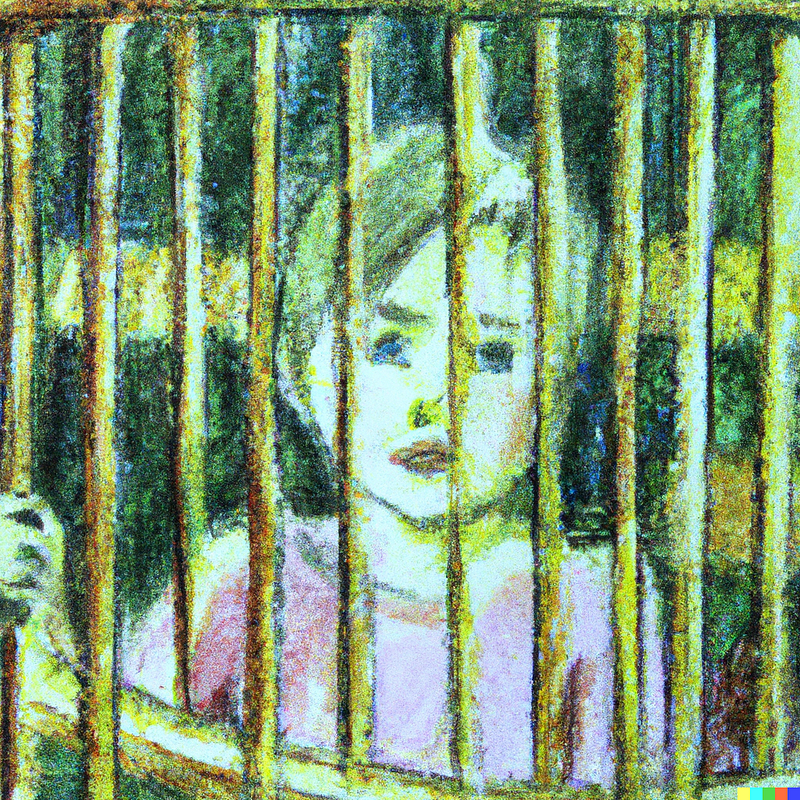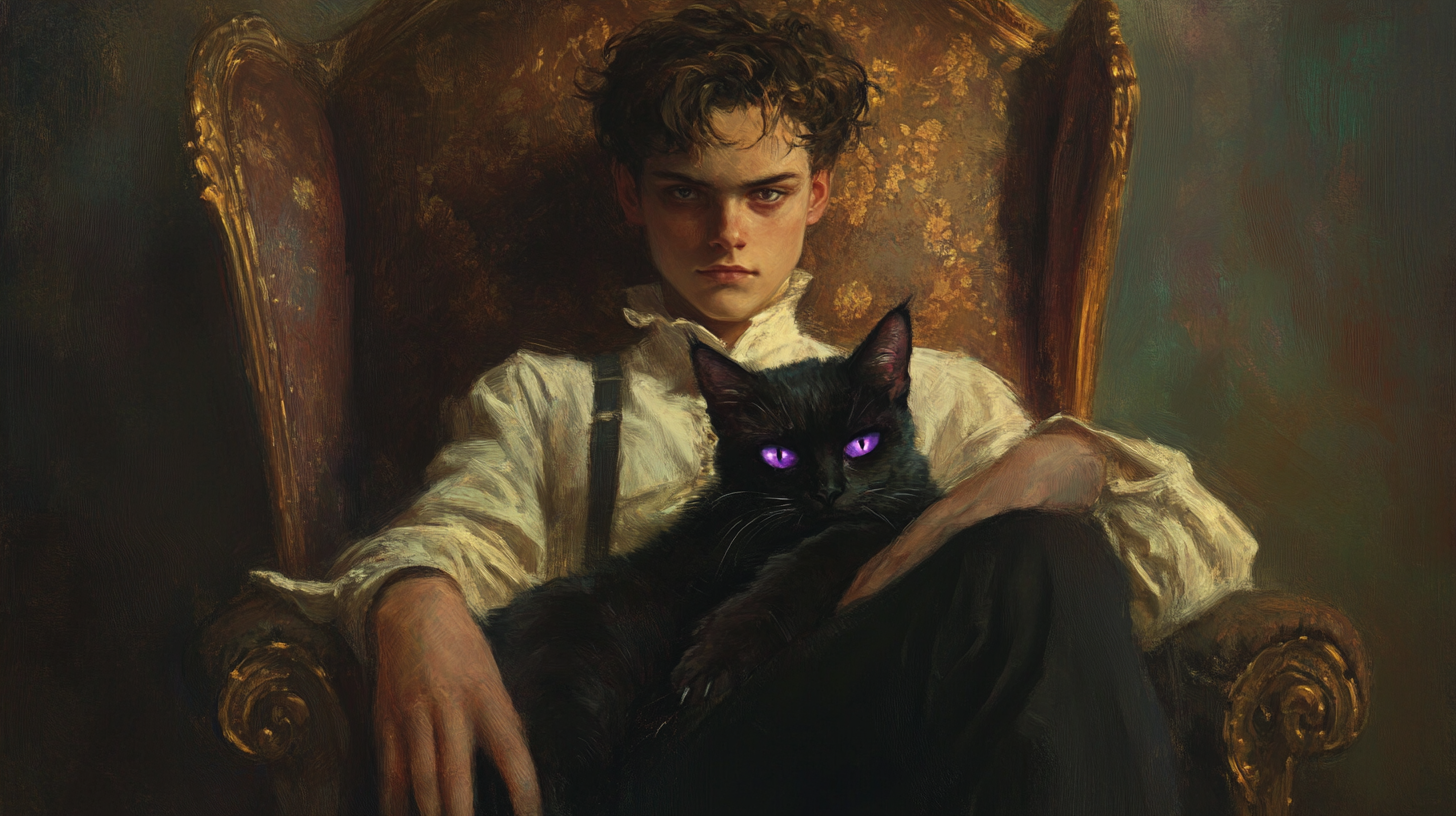What Would My Father Think of His Transgender Daughter?
All the things the dead cannot say directly


I turned 53 years old recently. The event was met with few accolades — at least from me. I try my best not to be celebrated on my birthday. Truth be told (and regular readers may already have surmised this), I have a difficult time being celebrated, period. I intend to return to that subject in the coming months.
But I brought up my birthday because I was surprised to receive an email from my father’s widow.
(Candidly, I don’t know how to refer to the woman married to my father when he died who has since remarried. Does she remain a stepmother after my father’s death? What about if she remarries? At 53, do I really need a stepmother? Wiser minds than mine will have to ponder these questions.)
I don’t remember the last time I had contact with my father’s widow — she and I were never close, and now that the relationship through my father is…whatever it is…I haven’t reached out to her. She sends holiday letters, however, and the last was addressed in my old name. I intended to reach out to ask her to update her contact information, but the urgency (and the importance) is low. Her email spurred my motivation, although I have dreaded this moment as well.
I suspect being transgender is not on my father’s widow’s List of Good Things.
My father’s widow is very conservative and very religious. I expect her to respond with a horrified email filled with declarations of an impending eternity in hell. To be clear, I have not received a response. It could be that I completely underestimate my father’s widow. In fact, I hope I do underestimate her.
But thinking about the response to coming out as transgender to my father’s widow is interesting. In my unreceived response, she asks the exasperated question “What would your father think?” Frankly, I believe she knows very well my father and I had little relationship, and invoking his opinion would have little effect on mine.
Nonetheless, this article would be my answer to her question.
If I were a pessimist
I have wondered — for 14 years — why my father did not ask me to visit him in the hospital as he lay dying of Hodgkin’s lymphoma. He asked all three of my sisters to visit. Through them, I heard my father made deathbed confessions of his life and actions. But he did not ask to see me.
The pessimist in me has a ready answer why I was not asked to visit: my father did not want to see me. Of all his children, the dying man saw no reason to reconcile with or bid farewell to me. He had no final blessing to bestow, no ultimate secret to share, no last wishes for my future.
If my father had no interest in seeing me one last time before his death, I find it easy to believe he would take news of my gender transition as just one more disappointment in the long string of disappointments my life and existence must have been to him.
Maybe my transition would be the final nail in the already pretty-dang-well-sealed coffin of our relationship. But that is what the pessimist in me believes. I think the pessimist is taking the easy, sour-grapes way out.
What I prefer to believe — not because I loved my father or believe I had some power of redemption for the strained relationship we had — is that he did not ask me to visit his deathbed because he was simply too embarrassed to do it. There was no doubt our relationship was terrible: my father was abusive — physically, mentally, and emotionally. He seemed to enjoy hurting people — me, at least.
What I learned from my father
I don’t understand what must snap inside a man that he would hit a small child. What sense of impotence must haunt him? Looking at my own son, I cannot fathom what it must take. I don’t want to know what ugly demon sits on the shoulders of child abusers. I leave it to them to grapple with.
What I do know, however, is this: when a parent shows such disrespect and hatred toward his child, the result is a deep-seated knowledge of worthlessness in the child.
I know painfully well that I am horrible. I am not worthy of respect. I am worthy only of hatred — otherwise, my father would have loved me. But instead, he hit me.
So I know — with no guesswork, no doubts — I know I should hate myself. If even my father couldn’t love me, I must be irredeemable.
All my pain, all my suffering — every time I drank myself to oblivion, every time I sliced myself with a butcher knife, every time I beat my head against a wall until I was dizzy — that is my inheritance. Every time I was released from the hospital — assured I was no longer in danger of hurting myself or others — there was no change in the basic knowledge that the pain I felt was payment for my worthlessness.
This is what I learned from my father.
What I choose to believe
Today, I believe — truly, in my heart — that my father sensed at least some of my self-loathing. That is why he couldn’t invite me to his deathbed. He was too embarrassed, not ready to look me in the face and say:
I’m sorry. I’m sorry I taught you to hate yourself. I see it has not served you well.
I don’t hold this belief about my father because I believe in the intrinsic goodness of humanity (although I do). I don’t hold this belief about my father because I believe he was truly a kind, loving person in a bad situation (because I don’t). I hold this belief about my father because I look at my own son and know I want something better for him than I had.
My father told me the same thing — that he wanted me to have a life better than he did. But it would have taken a mountain of denial not to observe he failed to equip me properly to do better. My father was a gruff man — an angry man — but he was not a stupid man. He had to know I went into the world without the armor of being capable of loving and caring for myself.
And yet I succeeded
I fought my way to where I am today. By all measures, I have exceeded everything my father did. I achieved a Ph.D. level of education. I had a successful career, leading people who followed me willingly. I have a wonderful relationship with my wife. I have a son who loves me.
And now…after 52 years of suffering and a year of thinking about, waffling over, denying the existence of, and finally embracing my transgender, I see myself in the mirror. I see a good person; I see a beautiful woman; I see somebody people love. My father was not a stupid man. He would have been able to see this.
And this is why I believe my father did not invite me to his deathbed for a final farewell. What must it have felt like to watch your child struggle for so long knowing you could have helped only by controlling your anger a lifetime of years earlier?
If the roles had been reversed, I would never have asked him to my deathbed. I could never ask for that kind of forgiveness. I would prefer to take my chances with judgment in the afterlife — eternal punishment in hell, whatever — than face my child knowing the mutilation I caused.
My answer to the question
If my father had lived — if instead, we had had the last 14 years together on the planet — I choose to believe he would see my gender transition as the first, toddling steps of a woman learning, finally, that she deserves to be loved. I believe my father would breathe a tentative sigh of relief. Perhaps now he could stop wondering when I would commit suicide or suffer a breakdown so severe I could never come back.
I believe my father would welcome another daughter in a way he could never welcome a son.
But I’ll never truly know. My father is dead. He has been dead 14 years, and he died without knowing I would someday have a family filled with love. He died without knowing I might actually pull things together in this lifetime. He died without knowing I recognize the role he played in all the dreadful nightmares that blacken my life, and I have begun to heal the damage.
What would my father think? I believe my father would consider a moment, perhaps speak a quiet prayer of thanks to the deities he did not believe exist.
Then he would look at me and say only:
Well done, Amethysta.
Some may read my story and think I am being too charitable to a man worthy of my contempt.
Maybe. But there is no margin in hating the dead.
Not when I have so much to learn in loving myself.




